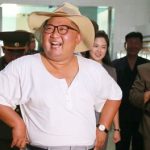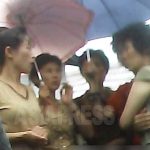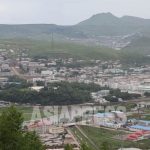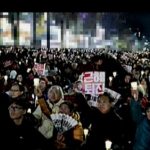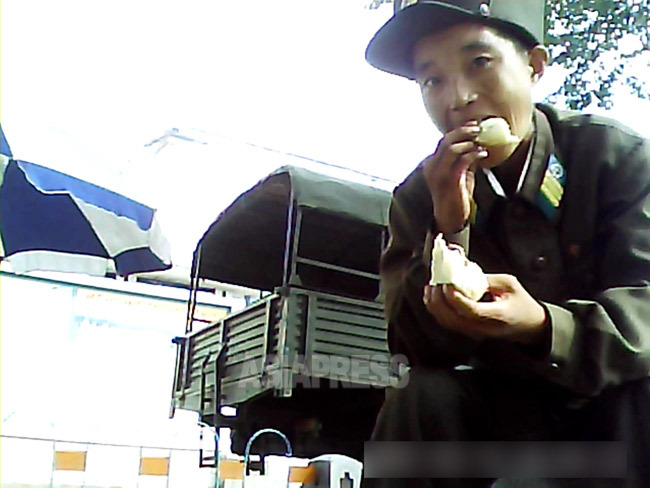
◆ Enlistment following graduation
North Korea's compulsory education system is a total of 12 years: 1 year in kindergarten, 5 years in elementary school, 3 years in junior high school, and 3 years in high school. At the age of 16, when students are in their final year of high school, they must register for the military to prepare for their enlistment following graduation. Though male students need not enlist immediately after graduation, it is compulsory for men to join the military between the ages between the ages of 17 and 25. It is said that women may join the military at the age of 18 in a supporting role.
The military recruitment agency is known as the Military Mobilization Department and is in charge of recruitment for the People’s Armed Forces. Across the country, the Military Mobilization Department collaborates with local hospitals to conduct recruiting at high schools and workplaces.
◆ Cautions against illegal enlistment
One must register and receive a physical examination before enlisting in the People’s Army. However, in the past, not all graduating high-schoolers registered or received physical examinations before leaving school and entering workplaces.
In addition, parents of underweight students are urged to raise their children to be more healthy and to secure good medical treatment for their children so that they can later qualify for military service.
◆ Every N. Korean knows that serving in the military means going hungry
In reality, we can see that military recruitment is not a smooth process. After graduating from high school, North Korean men can postpone their military service by enrolling in college or a vocational school, by being assigned to a workplace, or avoid service altogether due to disqualifying medical conditions.
The lives of those serving in the military for over 10 years are known to be particularly harsh. In fact, it is not uncommon for recent recruits to be sent home due to malnourishment. All North Koreans know that enlistment involves a lot of physical pain and mental exhaustion.
As a result, parents have come up with several methods of ensuring that their children are either placed in well-fed units or avoid enlistment altogether. Since the mid-2000’s, parents have often tried to bribe officers of the Military Mobilization Department to get their children out of enlistment or officials of the hospital to diagnose their child with a disqualifying disease. As for enrollment in advanced education, grades are important but not as important as money.
According to a reporting partner, “Without completing military service it is almost impossible to join the Workers Party or advance in the ranks, but these days young people don’t care about that. They know the power of money and think it’s better to get out into society and make money quickly.” The consciousness of the new generation, which grew up during the heyday of the marketized economy, has indeed completely changed from the past.
According to ASIAPRESS reporter, Kang Ji-won, a defector with experience in the military, “March is the month when new recruits enlist. Through to the end of February, parents will pay to have their children diagnosed with illnesses or send their children to college so that they can avoid enlistment. The political ideology lectures [which were held in March] were likely delivered as a warning to parents and also to educate children about the importance of military service.” (ISHIMARU Jiro)
- <Interview with N. Korean Residents (Part 2)> “The South did nothing for us”: North Koreans Blame Defectors and Moon for Destruction of Border Liaison Office (2020-06-25 17:02:43)
- <Interview with N. Korean residents (Part 1)> “South Korea at Fault This Time”: North Korean Citizens Sympathize with Decision to Destroy Joint Liaison Office (2020-06-24 18:18:30)
- <Inside N. Korea> “Death to Defectors”: Kim Yo-jung’s Campaign Incites Hatred Against Defectors and Stokes Fear among their Families Still in the North (2020-06-22 16:33:29)
- <A Look at the Latest in N. Korean TV> Regime Introduces New TV Channels to Combat the Popularity of K-Dramas (2020-06-19 21:37:18)
- <North Korea> Kim Yo-jung Emerges as a Quasi-Supreme Leader...Has an Era of “Brother-Sister Rule” Officially Began (2020-06-17 11:57:21)
 Editor’s notes on North Korean reporters
Editor’s notes on North Korean reporters
ALL REPORTS >>>
ARCHIVE(pdf) >>
DPRK MAP >>


